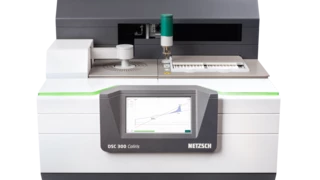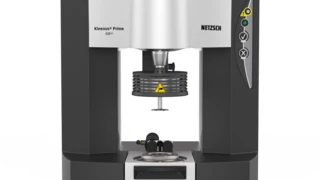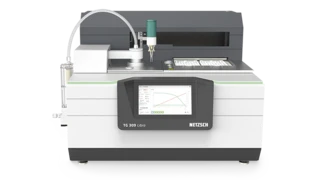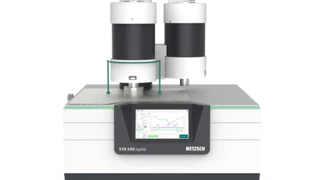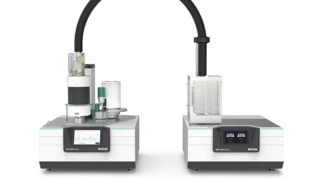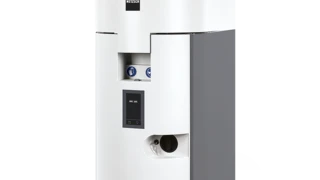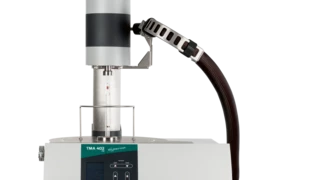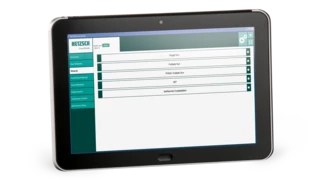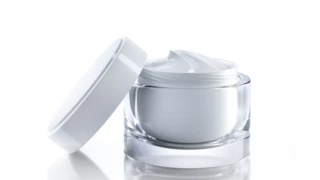Pharma
Thermal Analysis and Rheology Solutions for Studying Pharmaceuticals
Medicine has made enormous progress in recent decades - supported by the formation of new therapies and drugs.
The development of new pharmaceuticals goes through several stages, from the discovery of a drug to the development and manufacturing of a new dosage form. Throughout this process, several analytical methods are employed to assure the safety and efficacy of the drug/drug product. Thermal analysis and rheometry are key analytical techniques that accompany and facilitate the research and development, scale-up and quality control of pharmaceuticals.
What We Do: Thermal Analysis and Rheology in the Pre-Clinical Development Stage and Quality Control of Pharmaceuticals
NETZSCH Analyzing & Testing has exactly the devices and methods you need, and supplies them under the motto of Proven Excellence!
What can you achieve?
Changes in material properties during heating (or cooling) under a controlled environment can be characterized by various thermal analysis techniques such as Differential Scanning Calorimetry (DSC), Thermogravimetric Analysis (TGA), and Accelerating Rate Calorimetry (ARC)The method describing isothermal and adiabatic test procedures used to detect thermally exothermic decomposition reactions.Accelerating Rate Calorimetry (Accelerating Rate Calorimetry (ARC)The method describing isothermal and adiabatic test procedures used to detect thermally exothermic decomposition reactions.ARC®). DSC identifies and determines the Glass Transition TemperatureThe glass transition is one of the most important properties of amorphous and semi-crystalline materials, e.g., inorganic glasses, amorphous metals, polymers, pharmaceuticals and food ingredients, etc., and describes the temperature region where the mechanical properties of the materials change from hard and brittle to more soft, deformable or rubbery.glass transition and/or Melting Temperatures and EnthalpiesThe enthalpy of fusion of a substance, also known as latent heat, is a measure of the energy input, typically heat, which is necessary to convert a substance from solid to liquid state. The melting point of a substance is the temperature at which it changes state from solid (crystalline) to liquid (isotropic melt).melting point of Active Pharmaceutical Ingredients (APIs) and excipients as well as polymorphic modifications. The thermal and oxidative stability of substances, their hydration state or the amount of residual solvent is studied by means of TGA. Both methods are commonly applied to check the compatibility of components in a formulation and the interactions between the formulation and the packaging materials. Moreover, DSC and TGA can also be applied to assure that the material properties are preserved during production, transport, and storage. Accelerating Rate Calorimetry (ARC)The method describing isothermal and adiabatic test procedures used to detect thermally exothermic decomposition reactions.Accelerating Rate Calorimetry (Accelerating Rate Calorimetry (ARC)The method describing isothermal and adiabatic test procedures used to detect thermally exothermic decomposition reactions.ARC®®) instruments identify chemical hazards and simulate Worst-Case ScenarioRelated to a chemical reactor, a worst-case scenario is the situation where temperature and/or pressure production caused by the reaction runs out of control.worst-case scenarios, which may potentially occur anywhere along the process from the storage of raw materials to production.
Characterization of the rheological behavior of individual components and of final products goes far beyond flow curves and viscosity. Viscoelastic properties, yield StressStress is defined as a level of force applied on a sample with a well-defined cross section. (Stress = force/area). Samples having a circular or rectangular cross section can be compressed or stretched. Elastic materials like rubber can be stretched up to 5 to 10 times their original length.stress, gelation properties, and flow properties of liquids and semi-solids under relevant shear rates are examples of rheological applications in the pharma field. The Kinexus rotational rheometer and the Rosand high-pressure capillary rheometer cover the broadest shear rate range available on the market, and are indispensable to the research, development and quality control of pharmaceuticals.
Best available equipment for investigations in the pharmaceutical industry
The software for the NETZSCH DSC, TGA and STA devices is in line with 21 CFR Part 11 and ensures data integrity.

